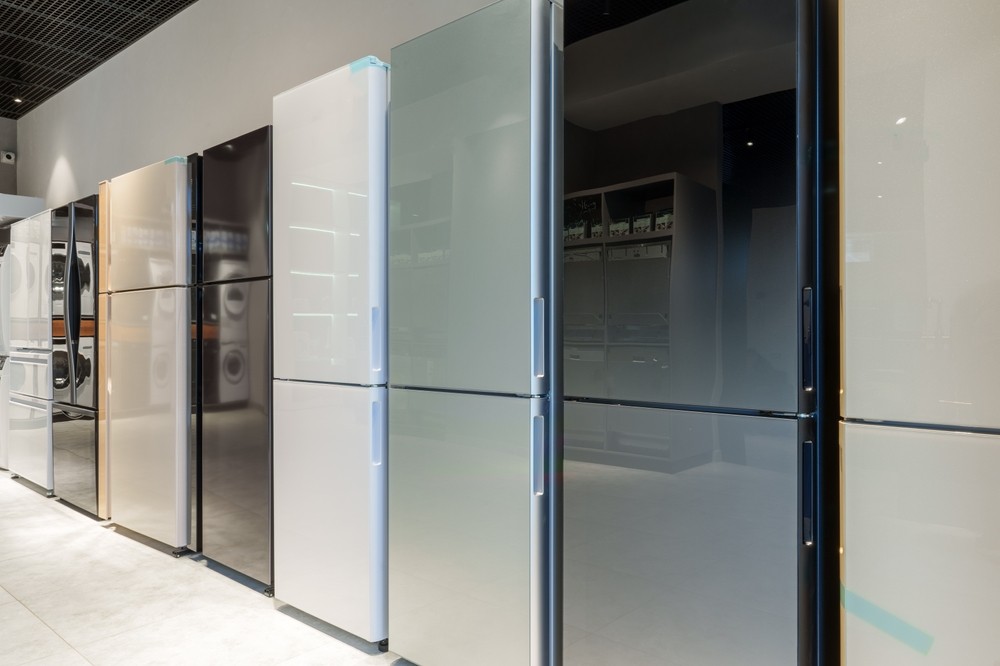A refrigerator is one of the most essential appliances in any home, running continuously to keep food fresh and safe. However, older refrigerators can use significantly more energy than modern, energy-efficient models. With advancements in design and technology, today’s refrigerators offer improved performance while dramatically reducing energy consumption.
If you are considering upgrading your refrigerator, understanding how the latest models optimize efficiency, cooling power, and cost savings can help you make an informed decision.
The Evolution of Refrigerator Efficiency
Refrigerators have changed significantly over the past few decades. Older models were built with less efficient insulation, used outdated cooling technology, and consumed far more energy than necessary. According to the U.S. Department of Energy, a typical refrigerator from the 1990s can use up to three times the electricity of a modern energy-efficient unit.
In 1975, the average household refrigerator consumed around 1,800 kilowatt-hours per year. By 2000, improvements in compressor technology, insulation, and refrigerants reduced this number to around 700 kilowatt-hours. Today’s most efficient models use less than 400 kilowatt-hours annually. This means that replacing an old refrigerator with a new one can lead to substantial energy savings over time.
Government regulations and programs like Energy Star have played a major role in improving efficiency standards. Energy Star-certified refrigerators meet strict energy efficiency guidelines set by the Environmental Protection Agency and the Department of Energy. These models use at least 15 percent less energy than non-certified units, providing homeowners with long-term cost savings.
How Energy-Efficient Refrigerators Work
Modern refrigerators incorporate a combination of design improvements and advanced technology to maximize efficiency. Several key features contribute to lower energy consumption while maintaining optimal cooling performance.
Improved Insulation
High-efficiency refrigerators use better insulation materials that reduce heat transfer. This means the refrigerator retains cold air more effectively, reducing the need for the compressor to cycle on and off frequently. Traditional models often lose cold air due to poor insulation and inefficient door seals, causing the appliance to work harder to maintain a consistent temperature.
Advanced Compressors
The compressor is the heart of a refrigerator’s cooling system. Older models use single-speed compressors that operate at full capacity when running, leading to excessive energy use. Modern refrigerators often feature variable-speed or inverter compressors that adjust cooling output based on demand. These compressors run more efficiently, reducing overall energy consumption.
Energy-Efficient Refrigerants
Refrigerants play a crucial role in cooling, but traditional options like CFCs and HCFCs have been phased out due to their harmful environmental impact. Modern refrigerators use eco-friendly refrigerants such as R-600a, which has a lower global warming potential and improves energy efficiency. These newer refrigerants also enhance the cooling process, requiring less power to maintain optimal temperatures.
LED Lighting
Older refrigerators often use incandescent bulbs, which generate excess heat and consume more energy. Modern refrigerators are equipped with LED lighting, which uses significantly less power and produces minimal heat. LED bulbs last longer than traditional bulbs, reducing maintenance and replacement costs over the lifespan of the appliance.
Smart Temperature Controls
Energy-efficient refrigerators are designed with digital temperature controls and sensors that regulate cooling more precisely. These sensors monitor the internal temperature and make automatic adjustments to maintain ideal conditions without overcooling. Some high-end models even feature adaptive defrost functions that reduce unnecessary energy use by defrosting only when needed.
Door-in-Door and Vacuum-Sealed Technology
One of the most common ways refrigerators waste energy is through frequent door openings. Each time the door is opened, warm air enters, causing the appliance to work harder to restore the set temperature. Some modern models feature door-in-door designs that allow access to frequently used items without fully opening the main compartment. Vacuum-sealed doors further enhance efficiency by minimizing air leakage.
Benefits of Upgrading to an Energy-Efficient Refrigerator
Lower Energy Bills
Switching to an energy-efficient refrigerator can result in significant savings on electricity costs. Depending on the model being replaced, homeowners can save between $100 and $300 per year in reduced energy expenses. Over the typical lifespan of a refrigerator, these savings can add up to thousands of dollars.
Longer Lifespan and Lower Maintenance Costs
Newer refrigerators are built with more durable components and advanced cooling technology, leading to a longer operational life. Energy-efficient models also experience less strain on their compressors and motors, reducing the likelihood of breakdowns and costly repairs.
Environmental Benefits
Reducing energy consumption directly contributes to a lower carbon footprint. Traditional refrigerators account for a substantial portion of household electricity use, but upgrading to an efficient model decreases overall energy demand. This shift helps reduce greenhouse gas emissions from power plants and lowers environmental impact. Eco-friendly refrigerants used in modern units contribute to a reduction in ozone depletion and climate change effects.
Consistent and Improved Cooling Performance
Older refrigerators often struggle to maintain stable temperatures, leading to uneven cooling and potential food spoilage. Advanced temperature control systems in new models provide precise regulation, ensuring that food stays fresher for longer. Some high-tech models even feature separate cooling zones, humidity-controlled drawers, and air filtration systems to optimize food preservation.
Smart Features and Convenience
Many of today’s refrigerators are equipped with smart technology that enhances user convenience while improving efficiency. Some smart refrigerators connect to Wi-Fi and allow users to monitor temperature settings, receive maintenance alerts, and track food inventory through smartphone apps. These features not only improve functionality but also help users avoid energy waste by optimizing cooling settings.
Choosing the Right Energy-Efficient Refrigerator
When selecting a new refrigerator, there are several factors to consider to maximize energy savings and performance.
Energy Star Certification
The Energy Star label is one of the most reliable indicators of efficiency. Energy Star-certified refrigerators exceed government energy efficiency standards and often come with rebates or incentives from utility companies. Checking for this certification ensures that the model meets stringent energy-saving criteria.
Size and Capacity
Larger refrigerators consume more energy, so it is essential to choose a size that fits your household needs. For small households, a compact model may be sufficient, while larger families may require a full-size unit. Avoid purchasing an oversized refrigerator, as it will consume unnecessary power even when not fully stocked.
Door Style and Configuration
Different door configurations impact efficiency and convenience.
- Top-freezer models tend to be the most energy-efficient and cost-effective.
- Bottom-freezer models provide easier access to fresh food while maintaining good efficiency.
- Side-by-side models and French door refrigerators offer more space and modern features but generally consume more energy.
Additional Features
Some extra features can enhance efficiency but may also increase upfront costs. Consider whether you need ice makers, water dispensers, smart controls, or temperature-controlled drawers. While these features provide convenience, they can also impact energy use.
Upgrading to a high-performance, energy-efficient refrigerator is a smart investment that benefits both your household budget and the environment. With advanced insulation, variable-speed compressors, and energy-saving features, modern refrigerators provide superior cooling performance while using significantly less electricity.
By selecting an Energy Star-certified model, choosing the right size, and considering efficiency-enhancing features, homeowners can enjoy lower utility bills, reduced maintenance costs, and a more sustainable lifestyle. With ongoing improvements in appliance technology, the future of refrigeration promises even greater energy savings and convenience for consumers.



